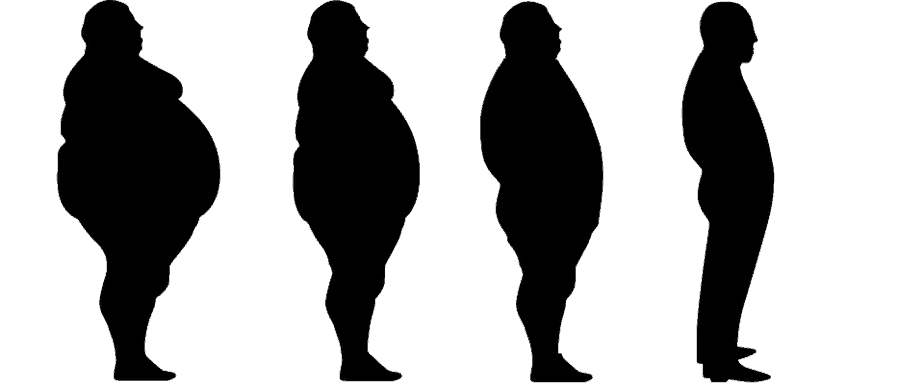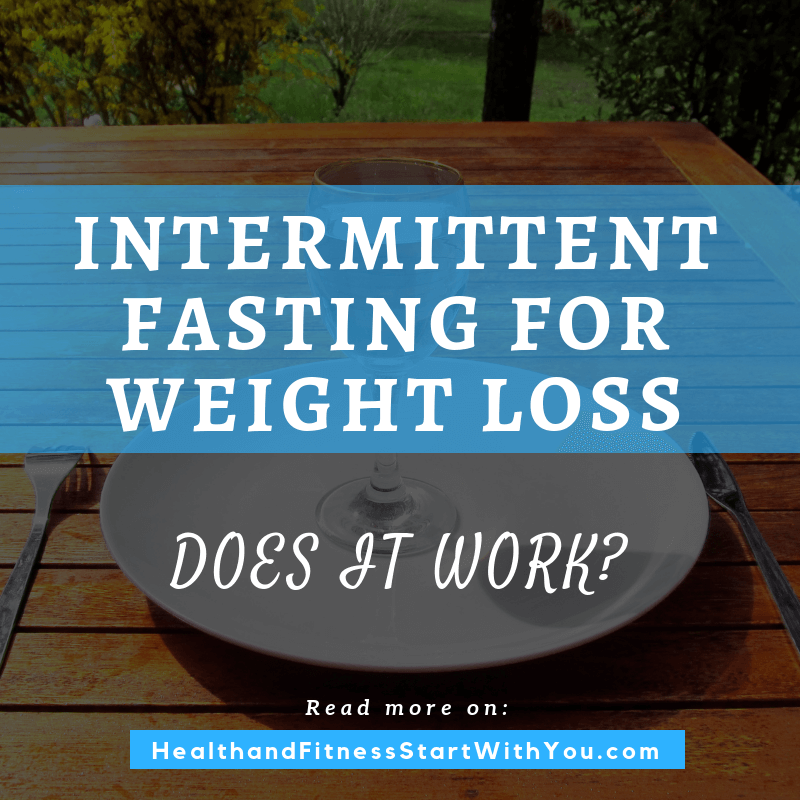I Tried Intermittent Fasting For Three Weeks And Here’s What I Think About It
 Hi guys! My name is Isaac and I’m the owner of this blog. In this post, I’d like to share with you guys on intermittent fasting for weight loss.
Hi guys! My name is Isaac and I’m the owner of this blog. In this post, I’d like to share with you guys on intermittent fasting for weight loss.
As you might be aware, intermittent fasting has been gaining popularity as one of the methods to lose weight. As someone who is striving to get to his ideal weight, I’ve had my fair share of doing it.
To be accurate, I’m doing intermittent fasting as part of the diet program in The 2 Week Diet Plan, a revolutionary diet plan that helped me to lose 8 pounds in just 2 weeks. (Read my review of the diet program here).
The 2 Week Diet Plan uses intermittent fasting as part of its core program apart from 3 other weight loss methods so I can say that it’s something that I’m doing almost every day for the past 3 weeks I’ve been on the diet plan.
In this post, I’ll share with you a bit of primer on how to do intermittent fasting for weight loss, its effect and how I felt when I was doing it.
Hint: I’m alive and well, so don’t believe those that says intermittent fasting is bad for your body – it’s not!
What Is Intermittent Fasting?

Let’s start with what is intermittent fasting. I’m sure you already know what fast means – it means you’re withholding from eating your usual normal meals.
For example, you’re skipping your usual lunch, that means you’re fasting from breakfast to dinner (around 8-10 hours).
What most people don’t know is we’re fasting everyday, specifically every night.
Think about it – from our dinner to the next morning, we’re not eating anything for the duration of 10-12 hours which should also consider as fasting.
The reason why we don’t feel anything about it is because the fast happens while we’re sleeping and using the least amount of energy.
And then think about the term breakfast or “break fast”. Does it mean we’re breaking fast every morning after a night devoid of eating? That’s an evidence that even the people who created the term acknowledge that we’re actually fasting everyday.
I’m only pointing this out to let you know that fasting is not as bad as what others would say it is. In fact, it’s a normal everyday stage of our body and life.
But in dieting terms, fasting means we’re consciously withholding from eating during our normal wake time.
And then what does intermittent fasting means?
It quite simply means that we’re not eating for a period of time intermittently – or not continuously everyday. Hence, intermittent fasting does not mean you will be fasting everyday, but in a regular, pre-planned schedule.
Does Intermittent Fasting Works? My Weight Loss Result With Intermittent Fasting

After 3 weeks of doing the 2 Week Diet, I can testify that the Intermittent Fasting helped a lot in reducing my weight (my record is 8 pounds in the first 2 weeks).
While some might say that the weight loss is mostly water, I don’t believe this to be the case as I’ve been drinking lots of water during the fast to keep my appetite at bay.
Yes, it can be hard to disrupt your normal 3-meals daily habit but I have to say it’s well worth it.
So is intermittent fasting for weight loss works? Yes it does!
To give some clarity, the 2 Week Diet uses intermittent fasting in two methods: 1) skipping breakfast (so you will fast from the previous day’s dinner to lunchtime ~ 16 hours) and 2) 24-hour fast (I used the dinner to dinner fast type).
Skipping breakfast works well to restrict calorie intake and I’m quite surprised that it also gives some other benefits (which I’ll state later on in this article).

As I occasionally skip breakfast due to my busy lifestyle, this type of intermittent fasting is not something that’s difficult for me to do.
The 24-hour fast, however, is grueling and very hard to do. Imagine not having breakfast AND skipping lunch.
By noon, I felt very hungry and tired. The only redemption is to drink lots of water (coffee and tea do the trick) to keep the hunger at bay.
One thing that I need to remind is to NOT drink any sugary water (soda, any iced drinks with sugars in it, etc.) as the glucose in it means you will be breaking the fast eventhough you’re not eating any meals.
But the result? I can say the 24-hour fast gave one of the better weight loss result of the two methods.
How Does Intermittent Fasting Causes Weight Loss?
There are a few reason why intermittent fasting can reduce weight loss. Here are some of the scientific and logical reasoning behind it:
- Lower Calorie Is Consumed
- Fasted State Will Reduce Insulin Level And Promote Fat Burning
1- Lower Calorie Is Consumed

The first and foremost logical reason is you will be consuming lesser calories when doing intermittent fasting compared to a normal 3-meal day.
I mean, it’s very logical right? When not doing intermittent fasting, we’re accustomed to eat at the 3 times of the day (morning, noon/lunchtime and afternoon/dinner).
But when doing intermittent fasting, at least one of these meals will be skipped which means your calorie consumption (or energy from foods eaten) for that day should decrease by a at least 20% (assuming you’re skipping breakfast). It can go up to 50%-70% decrease if you’re doing a 24-hour fast.
As I’ve written previously, reduction of calorie consumption is one of the ways that you can reduce your weight effectively.
But there’s a catch here. Too many people do the intermittent fasting with the wrong way as they indulge with too much food at the first meal to break the fast.
What happens is the calorie consumed might be almost the same or even higher than their normal daily calorie consumption.
So one rule to intermittent fasting is to ensure your meals are similar in size and proportion to a meal in your normal days. Only then you can reap the rewards of lower calorie consumption from intermittent fasting.
2- Fasted State Will Reduce Insulin Level And Promote Fat Burning

The next reason on why intermittent fasting for weight loss works is a bit scientific which you might not aware is happening inside your body when you eat or fast.
When we’re eating, insulin level will rise. Insulin’s primary job is to store excess energy as glycogen in the liver and muscles.
When you’re eating lots of food/calorie so much so this glycogen reserve in the liver is fulled, the liver will start to turn excess glycogen into fatty cells which will be stored in fat cells around our body (think love handles, stomach, butt, thigh, etc.).
The problem with fat cells are they are expandable without limit which means it can grow as big as you’re feeding them! So think carefully when you’re indulging in a lot of foods during buffets…
When we’re in fasted state (after skipping meals), insulin level will fall and this will signal the body to burn stored energy as there’s no more readily available glucose in bloodstream.
And once the glycogen in liver fully utilized, it’s time for the fats in around our body to be burned – which is what we want!
Is Intermittent Fasting Healthy?
Well, of course it is! It’s something that have been studied and cleared by the medical profession.
One thing that I can say is that human will only die after a week without consuming any food. So a few hours of additional fasting (after the sleep/night time fast) won’t cause you any harm right?
But of course, it’s not a good thing to overdo it as in doing a very long fasting duration within a short period of time – which could be the reason for these concerns on the intermittent fasting in the first place.

Conclusion
Intermittent fasting is a good method for weight and fat loss. In fact I’ve seen positive results when I used it as it helped me to lose my excess weight (as part of The 2 Week Diet Plan. Check it out if you haven’t as I highly recommend it to anyone looking to lose weight FAST).
The concerns raised on intermittent fasting health benefits might stemmed from lack of understanding on how our body works. Logically, not eating for a longer period daily WON’T cause us negative effect on our health.
Fasting is not dangerous. In fact our body is perfectly equipped to deal with fasting – that’s the whole purpose of those fat bags around our body.
It’s designed as energy reserves and intermittent fasting enables our body to utilize it while reducing fat and weight!
I hope this article helped you to understand how intermittent fasting for weight loss can do wonders for you. Do let me know if you have any other questions regarding it.
Cheers!
Isaac

Intermittent fasting looks like a good method. I’m so going to try this out. Thanks for this great info!
Hi Lydia. I’m glad that I’ve been able to help. Do let me know if you have any questions with IF.
I’ve read on some articles that intermittent fasting actually have few negative effects such as eating disorder, stress/anxiety and lowered metabolism. I really would like to try it but am afraid with these effects….
Hi Jordan. As someone who have been doing intermittent fasting for a whole month now, I definitely can say that no such side effects happened on me. If you’re worried about it, I suggest to start slow by shifting your breakfast time later and later (from 8 am to 9 am to 10 >> finally to skip it completely). Do let me know if this works out for you =)
I don’t think I can do this for now, I feel like I need food. Maybe later I can try this.
Hi Stella. While it seems daunting at first, intermittent fasting is not as horrible as it sounds. Just try to take your breakfast a bit later than you normally do. Continue to postpone your breakfast until you managed to keep your hunger at bay for a good 16 hours fast from your last dinner =)
I just did my first intermittent fasting and oh gosh, I never know it can be hard not to eat breakfast! My stomach was growling a few times in the morning presumably because it did not found any food which it was accustomed to. It was tiring but the good side is I managed to lose 1 pound today yay! So what should I do now? Should I fast everyday for every other day?
Hi Kyra. Intermittent fasting should be done intermittently (just like the name suggests) to get the best benefit. I won’t recommend to do it everyday as then your body will be accustomed to it. Every other day looks good to me. Do update us with your progress. Cheers!
I think fasting has a lot of side effects. But it is great for weight loss.
In terms of side effects, all I can say is fasting will reduce your energy so much so you will be feel very hard to go about in your daily lives. However, this is just a temporary effect as your body is not accustomed to fasting. Once you’ve done it few times, this effects will be lessen and minimized. Just be sure to eat responsibly and not over-eat when you break your fasting or else it will all go down the drain!